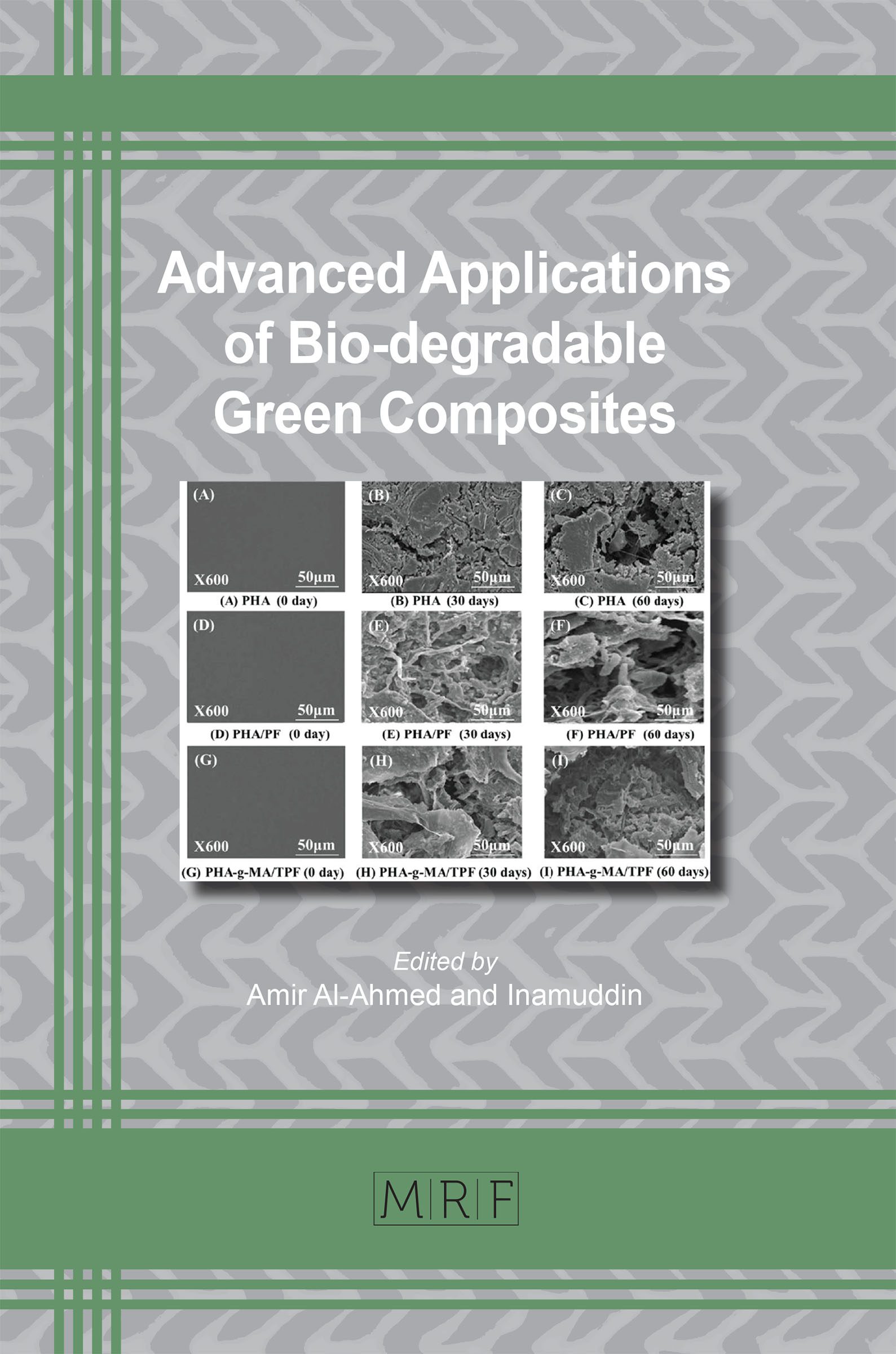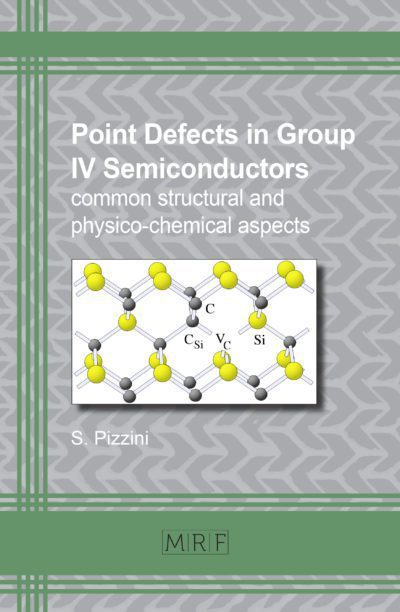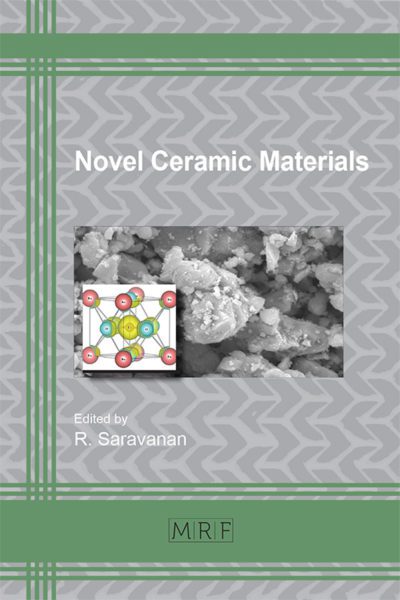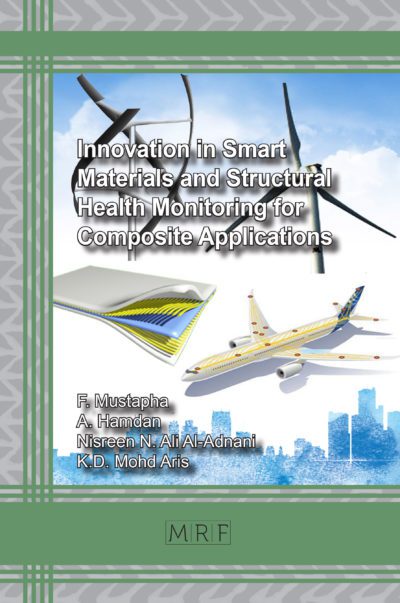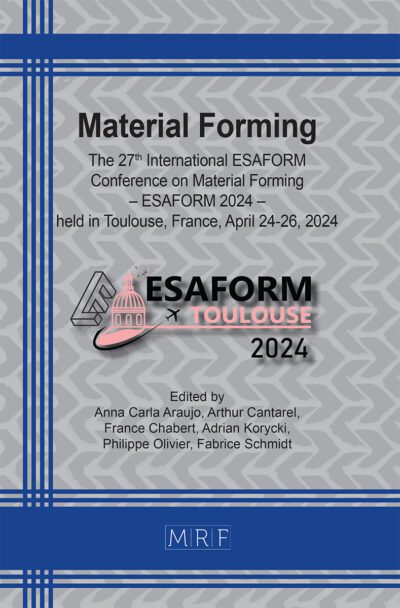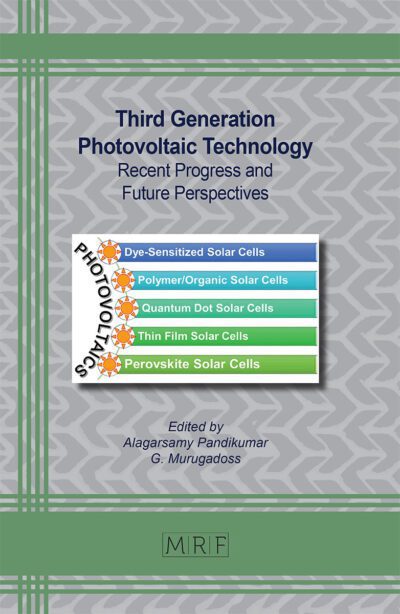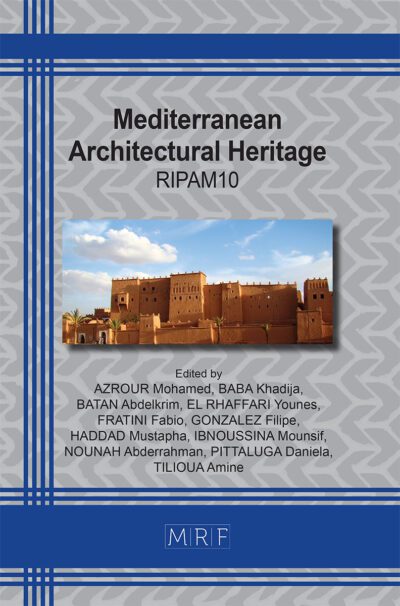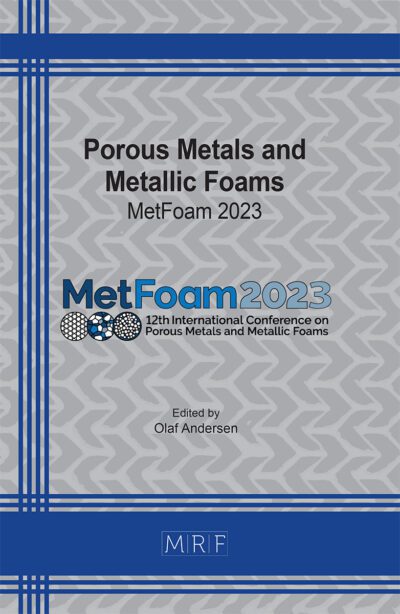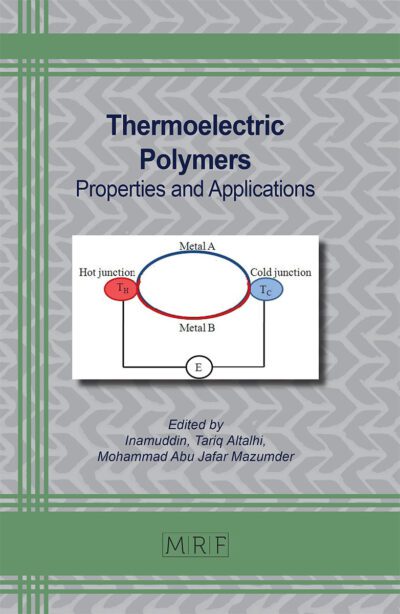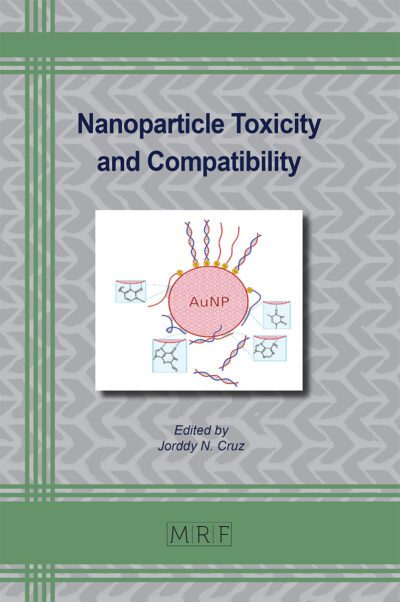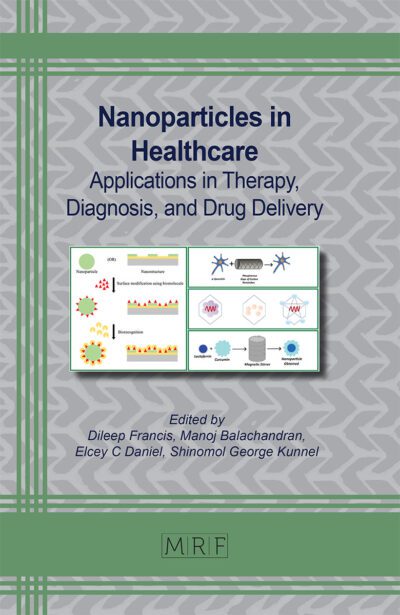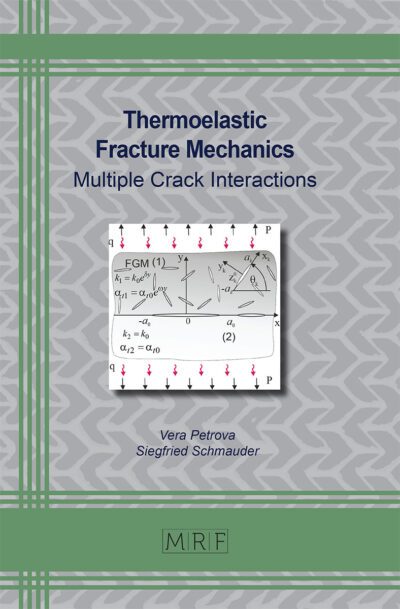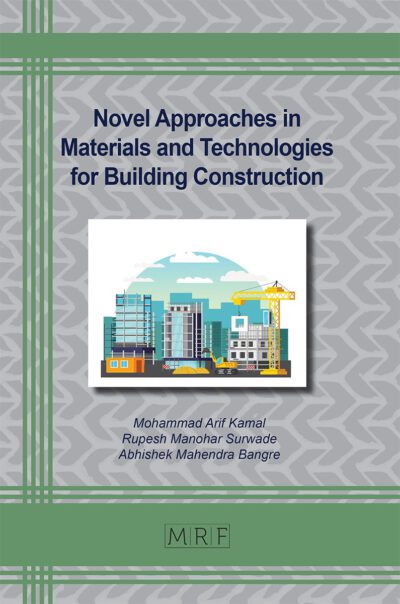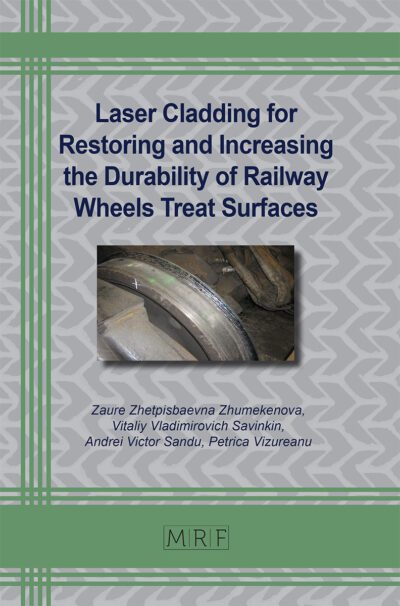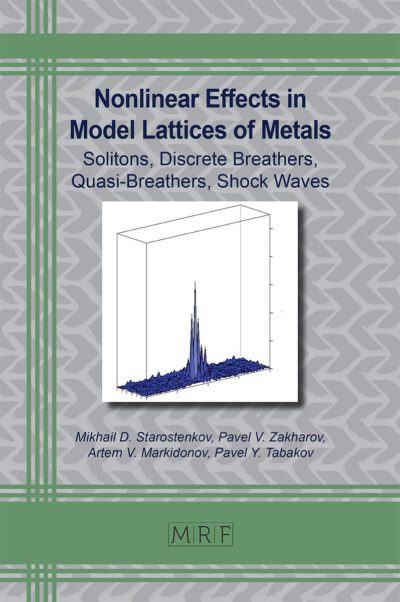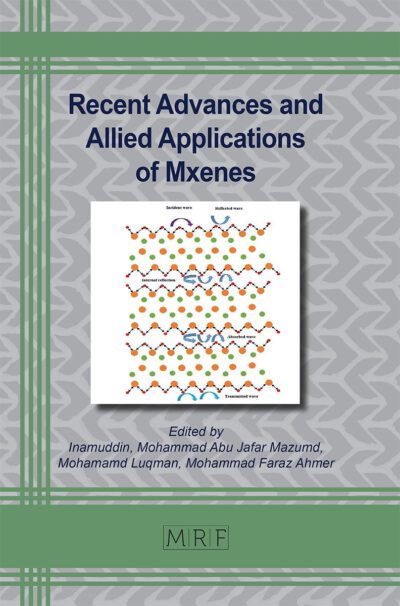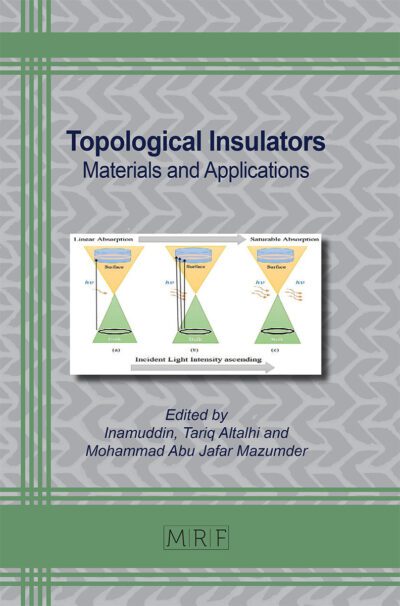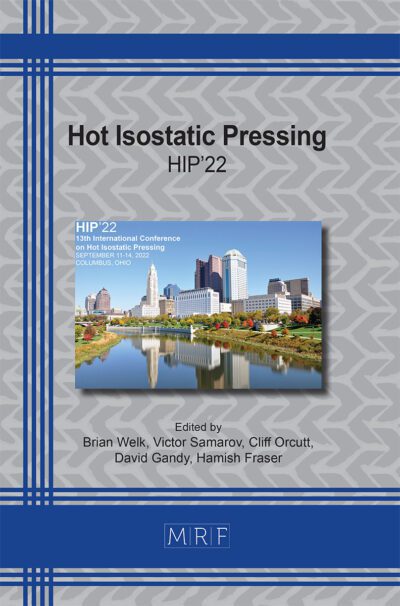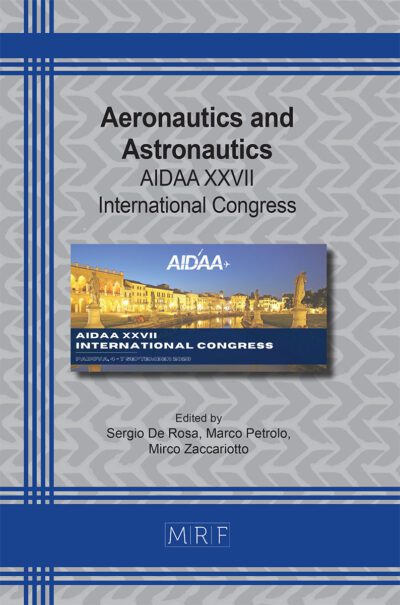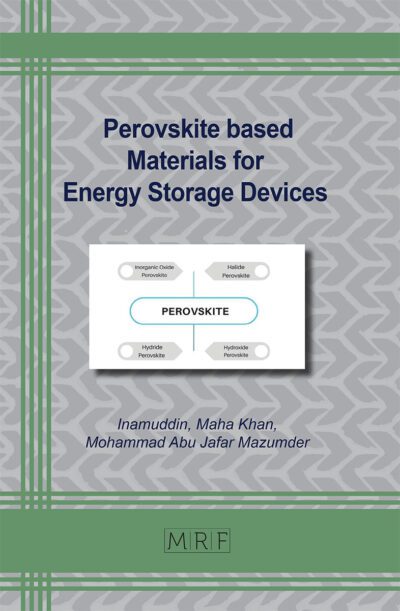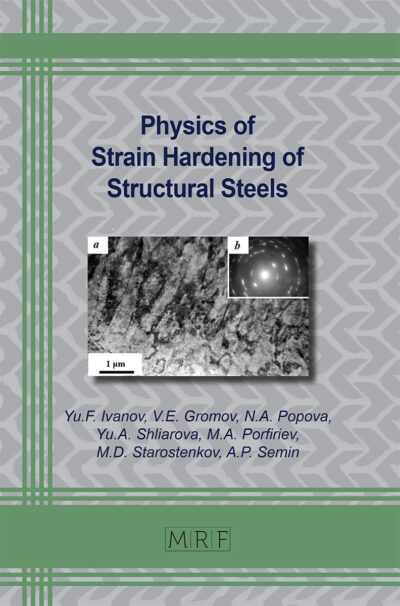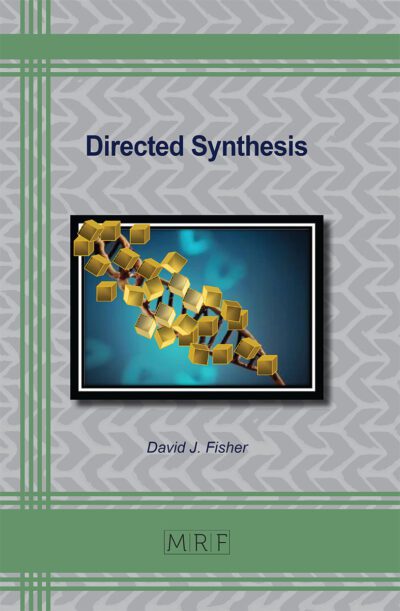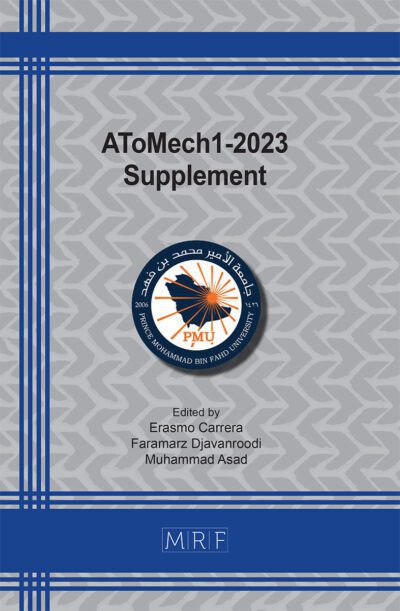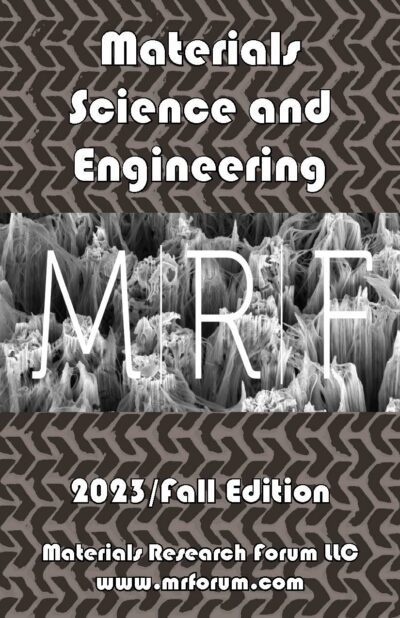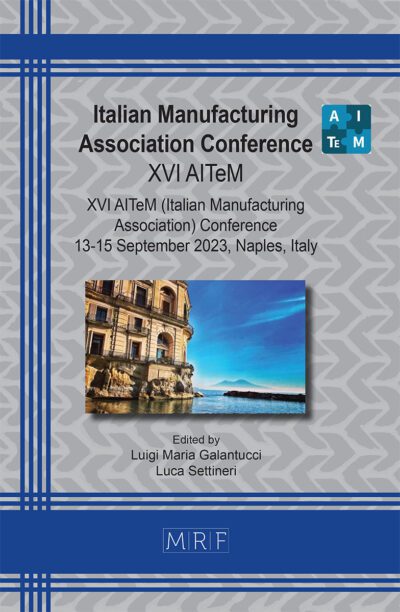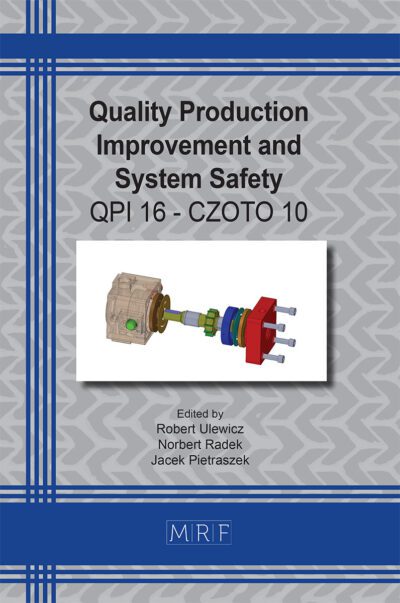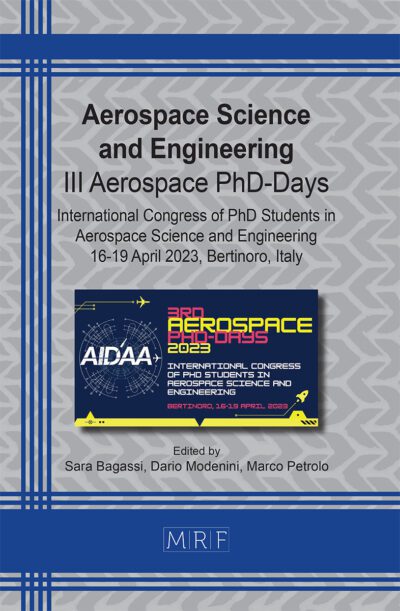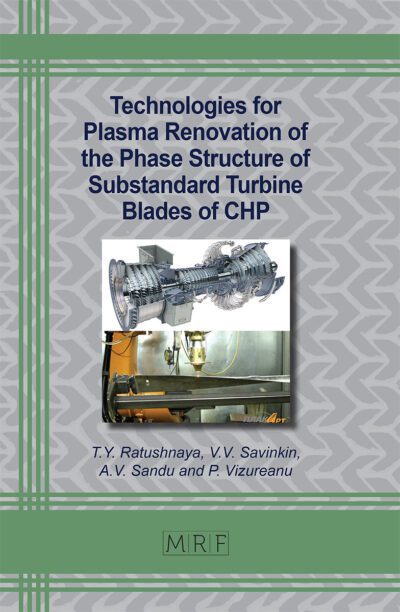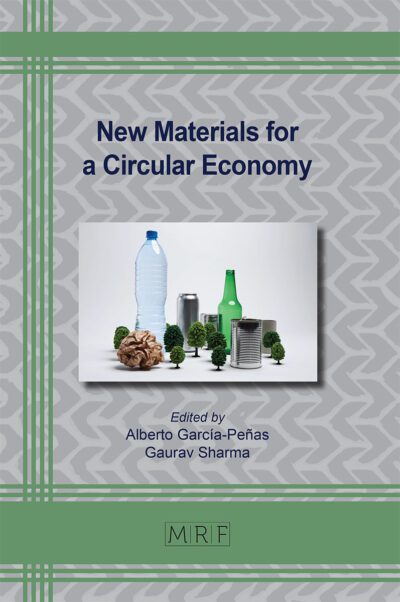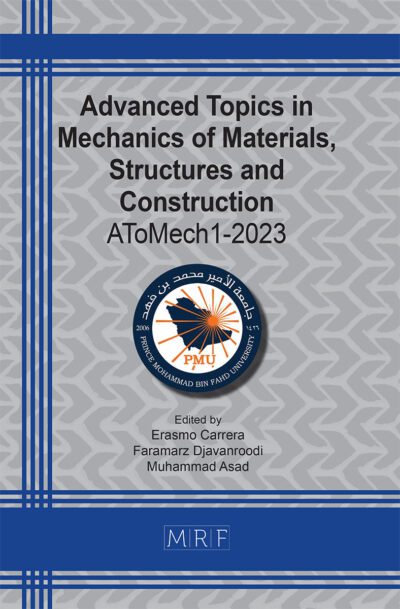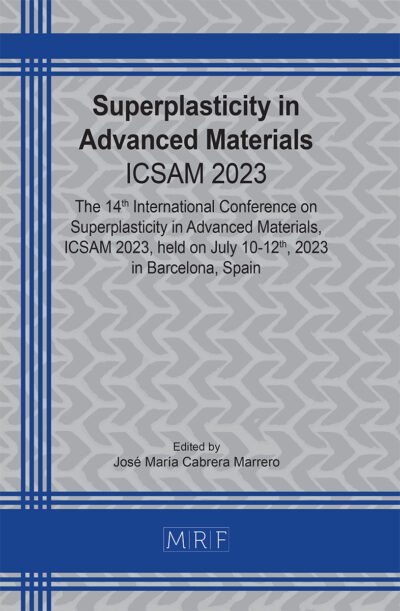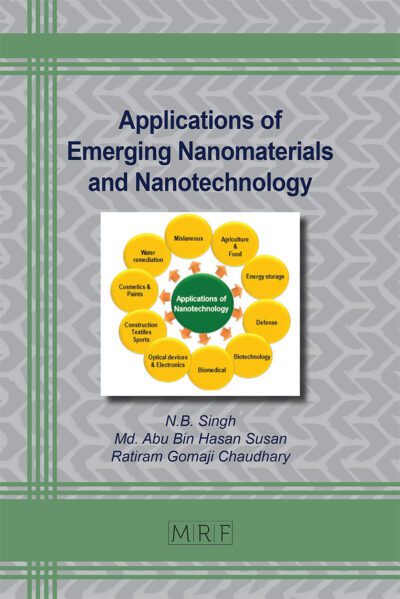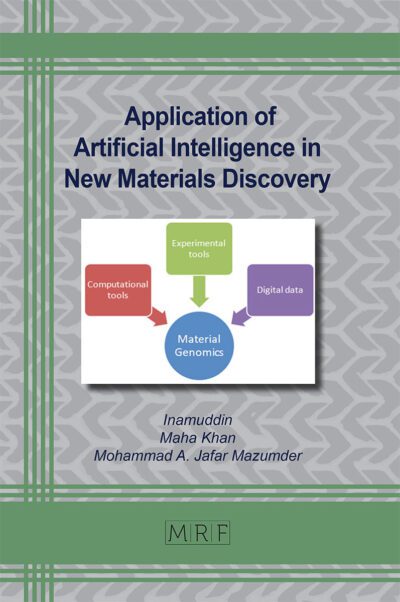Advanced Applications of Bio-degradable Green Composites
Eds. Amir Al-Ahmed and Inamuddin
Materials Research Foundations Vol. 68
Publication Date 2020, 202 Pages
Print ISBN 978-1-64490-064-2 (release date March, 2020)
ePDF ISBN 978-1-64490-065-9
DOI: 10.21741/9781644900659
The book reports progress on the development of new biodegradable polymers, composites and nanocomposites for use in such areas as drug delivery, packaging, food and agricultural technology. The world has become increasingly worried about non-degradable polymers used in our daily activities. Hence, biodegradable polymers and composites are of growing demand to replace petroleum based polymers and products.
Keywords
Biopolymers, Biodegradable Polymers, Biodegradable Composites, Biodegradable Nanocomposites, Green Composites, Biodegradable Packaging, Bioplastics, Biodegradation Test Methods, Polyhydroxybutyrate, Lipids, Liposomes, Lipid Composites, Natural Fiber, Drug Delivery, Dunnage, Electronics Packaging, Horticulture, Plantable Pots
flyer
Table of Contents
Biodegradation of Green Polymer Composites: Laboratory Procedures and Standard Test Methods
P. Rizzarelli, F. Degli Innocenti, G. Valenti, M. Rapisarda
Applications of Poly-3-Hydroxybutyrate Based Composite
Ranjna Sirohi, Jai Prakash Pandey, Ayon Tarafdar, Raveendran Sindhu, Parameswaran Binod and Ashok Pandey
Plant Fibre Based Biodegradable Green Composites
M. Harikrishna Kumar, C. Moganapriya, R. Rajasekar, T. Mohanraj
Biodegradable Materials for Planting Pots
B. Tomadoni, D. Merino, C. Casalongué, V. Alvarez1
Biodegradable Pots for Seedlings
S. Barbosa, L. Castillo
Biodegradable Packing for Non-Food Items
Debanga Bhusan Konwar, Titash Mondal, Shreedhar Bhat
Application of Biodegradable Lipid Composites in Drug Delivery
Vishal Beldar, Ritika Joshi, Sujit Kumar Ghosh and Manojkumar Jadhao
Google Preview
About the editors
Dr. Inamuddin is currently working as Assistant Professor in the Chemistry Department, Faculty of Science, King Abdulaziz University, Jeddah, Saudi Arabia. He is a permanent faculty member (Assistant Professor) at the Department of Applied Chemistry, Aligarh Muslim University, Aligarh, India. He obtained Master of Science degree in Organic Chemistry from Chaudhary Charan Singh (CCS) University, Meerut, India, in 2002. He received his Master of Philosophy and Doctor of Philosophy degrees in Applied Chemistry from Aligarh Muslim University (AMU), India, in 2004 and 2007, respectively. He has extensive research experience in multidisciplinary fields of Analytical Chemistry, Materials Chemistry, and Electrochemistry and, more specifically, Renewable Energy and Environment. He has worked on different research projects as project fellow and senior research fellow funded by University Grants Commission (UGC), Government of India, and Council of Scientific and Industrial Research (CSIR), Government of India. He has received Fast Track Young Scientist Award from the Department of Science and Technology, India, to work in the area of bending actuators and artificial muscles. He has completed four major research projects sanctioned by University Grant Commission, Department of Science and Technology, Council of Scientific and Industrial Research, and Council of Science and Technology, India. He has published 147 research articles in international journals of repute and eighteen book chapters in knowledge-based book editions published by renowned international publishers. He has published 60 edited books with Springer (U.K.), Elsevier, Nova Science Publishers, Inc. (U.S.A.), CRC Press Taylor & Francis Asia Pacific, Trans Tech Publications Ltd. (Switzerland), IntechOpen Limited (U.K.), and Materials Research Forum LLC (U.S.A). He is a member of various journals’ editorial boards. He is also serving as Associate Editor for journals (Environmental Chemistry Letter, Applied Water Science and Euro-Mediterranean Journal for Environmental Integration, Springer-Nature), Frontiers Section Editor (Current Analytical Chemistry, Bentham Science Publishers), Editorial Board Member (Scientific Reports-Nature), Editor (Eurasian Journal of Analytical Chemistry), and Review Editor (Frontiers in Chemistry, Frontiers, U.K.) He is also guest-editing various special thematic special issues to the journals of Elsevier, Bentham Science Publishers, and John Wiley & Sons, Inc. He has attended as well as chaired sessions in various international and national conferences. He has worked as a Postdoctoral Fellow, leading a research team at the Creative Research Initiative Center for Bio-Artificial Muscle, Hanyang University, South Korea, in the field of renewable energy, especially biofuel cells. He has also worked as a Postdoctoral Fellow at the Center of Research Excellence in Renewable Energy, King Fahd University of Petroleum and Minerals, Saudi Arabia, in the field of polymer electrolyte membrane fuel cells and computational fluid dynamics of polymer electrolyte membrane fuel cells. He is a life member of the Journal of the Indian Chemical Society. His research interest includes ion exchange materials, a sensor for heavy metal ions, biofuel cells, supercapacitors and bending actuators.
Dr. Rajender Boddula is currently working with Chinese Academy of Sciences-President’s International Fellowship Initiative (CAS-PIFI) at National Center for Nanoscience and Technology (NCNST, Beijing). His academic honors include University Grants Commission National Fellowship and many merit scholarships, study-abroad fellowships from Australian Endeavour Research fellowship and CAS-PIFI. He has published many scientific articles in international peer-reviewed journals and has authored six book chapters, and also serving as editorial board member and referee for reputed international peer-reviewed journals. He has published edited books with Springer, United Kingdom, Elsevier, CRC Press Taylor & Francis Asia Pacific and Materials Research Forum LLC, U.S.A. His specialized areas of energy conversion and storage, which include nanomaterials, graphene, polymer composites, heterogeneous catalysis, photoelectrocatalytic water splitting, biofuel cell, and supercapacitors.
Prof. Abdullah M. Asiri is the Head of the Chemistry Department at King Abdulaziz University since October 2009 and he is the founder and the Director of the Center of Excellence for Advanced Materials Research (CEAMR) since 2010 till date. He is the Professor of Organic Photochemistry. He graduated from King Abdulaziz University (KAU) with B.Sc. in Chemistry in 1990 and a Ph.D. from University of Wales, College of Cardiff, U.K. in 1995. His research interest covers color chemistry, synthesis of novel photochromic and thermochromic systems, synthesis of novel coloring matters and dyeing of textiles, materials chemistry, nanochemistry and nanotechnology, polymers and plastics. Prof. Asiri is the principal supervisors of more than 20 M.Sc. and six Ph.D. theses. He is the main author of ten books of different chemistry disciplines. Prof. Asiri is the Editor-in-Chief of King Abdulaziz University Journal of Science. A major achievement of Prof. Asiri is the research of tribochromic compounds, a new class of compounds which change from slightly or colorless to deep colored when subjected to small pressure or when grind. This discovery was introduced to the scientific community as a new terminology published by International Union of Pure and Applied Chemistry (IUPAC) in 2000. This discovery was awarded a patent from European Patent office and from UK patent. Prof. Asiri involved in many committees at the KAU level and on the national level. He took a major role in the advanced materials committee working for King Abdulaziz City for Science and Technology (KACST) to identify the national plan for science and technology in 2007. Prof. Asiri played a major role in advancing the chemistry education and research in KAU. He has been awarded the best researchers from KAU for the past five years. He also awarded the Young Scientist Award from the Saudi Chemical Society in 2009 and also the first prize for the distinction in science from the Saudi Chemical Society in 2012. He also received a recognition certificate from the American Chemical Society (Gulf region Chapter) for the advancement of chemical science in the Kingdome. He received a Scopus certificate for the most publishing scientist in Saudi Arabia in chemistry in 2008. He is also a member of the editorial board of various journals of international repute. He is the Vice- President of Saudi Chemical Society (Western Province Branch). He holds four USA patents, more than one thousand publications in international journals, several book chapters and edited books.

